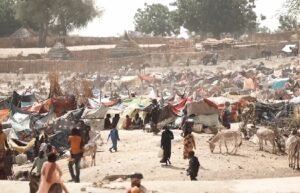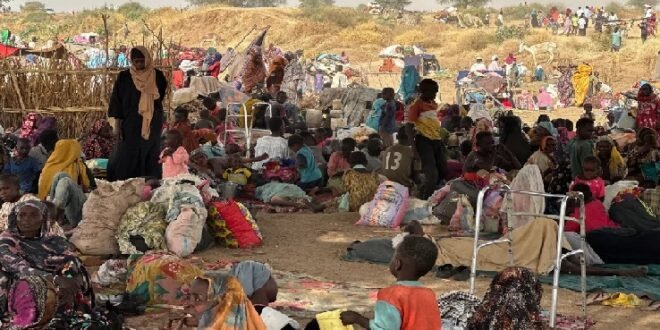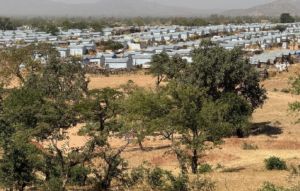04-06-2025
GENEVA/ KHARTOUM: The number of people who have fled Sudan since the beginning of its civil war in 2023 has surpassed four million, UN refugee agency officials said on Tuesday, adding that many survivors faced inadequate shelter due to funding shortages.
“Now in its third year, the 4 million people is a devastating milestone in what is the world’s most damaging displacement crisis at the moment,” UN refugee agency spokesperson Eujin Byun told a Geneva press briefing.
 “If the conflict continues in Sudan, thousands more people, we expect thousands more people will continue to flee, putting regional and global stability at stake,” she said.
“If the conflict continues in Sudan, thousands more people, we expect thousands more people will continue to flee, putting regional and global stability at stake,” she said.
Sudan, which erupted in violence in April 2023, shares borders with seven countries; Chad, South Sudan, Egypt, Eritrea, Ethiopia, Central African Republic and Libya.
More than 800,000 of the refugees have arrived in Chad, where their shelter conditions are dire due to funding shortages, with only 14% of funding appeals met, UNHCR’s Dossou Patrice Ahouansou told the same briefing.
“This is an unprecedented crisis that we are facing. This is a crisis of humanity. This is a crisis of … protection based on the violence that refugees are reporting,” he said.
Many of those fleeing reported surviving terror and violence, he added, describing meeting a seven-year-old girl in Chad who was hurt in an attack on her home in Sudan’s Zamzam displacement camp that killed her father and two brothers and had to have her leg amputated during her escape. Her mother had been killed in an earlier attack, he said.
Other refugees told stories of armed groups taking their horses and donkeys and forcing adults to draw their own family members by cart as they fled, he said.
A conflict in Sudan that erupted in April 2023 unleashed waves of ethnic violence, created the world’s worst humanitarian crisis and plunged several areas into famine.
On Friday, the Sudanese army announced it had control of the presidential palace in Khartoum, in what would be a significant symbolic victory in its fight with the paramilitary Rapid Support Forces (RSF).
Tensions were building for months before fighting between Sudan’s army and the RSF erupted in Khartoum on April 15, 2023.
The army and RSF had been in a fragile partnership after staging a coup in October 2021, which derailed a transition from the rule of Islamist autocrat Omar al-Bashir. Bashir was ousted in 2019.
The two sides clashed over an internationally backed plan that would have launched a new transition with civilian parties and required the army and the RSF to cede powers.
Specific points of dispute were the timetable for the RSF to be integrated into the regular armed forces, the chain of command between the army and RSF leaders, and the question of civilian oversight.
The warring parties had also been in competition over sprawling business interests, which they were seeking to protect.
Sudan has long had conflict stemming from a concentration of power and wealth in the centre of the country at the expense of the periphery, something the RSF says it is fighting to redress.
WHO ARE THE MAIN PLAYERS?
Protagonists in the power struggle are General Abdel Fattah al-Burhan, head of the army and leader of Sudan’s ruling council since 2019, and his former deputy on the council, RSF leader General Mohamed Hamdan Dagalo, known as Hemedti. (Int’l Monitoring Desk)
 Pressmediaofindia
Pressmediaofindia





